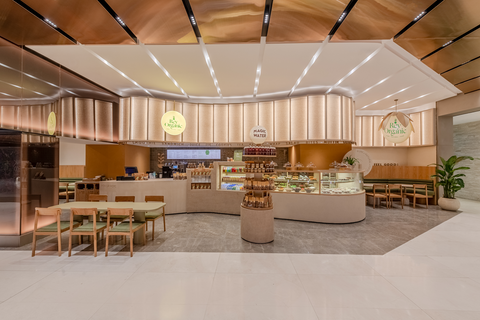What Is Gluten?
Gluten is a type of protein found in grains such as wheat, barley and rye. Gluten gives the foods it contains, when cooked, its durable, flexible and fibrous structure. It is a large protein. Therefore, it cannot be digested by people with celiac disease and gluten intolerance.
What is Gluten Intolerance and How Is It Diagnosed?
Gluten intolerance is the inability to tolerate gluten after consuming any gluten-containing food. When individuals with this intolerance consume a food containing gluten, gluten enters the bloodstream and the body gives a kind of immune response. In general, these individuals experience bloating, abdominal pain, diarrhea, nausea, constipation and intestinal problems after consuming gluten. While you can detect celiac disease with the help of medical tests, there is no kind of biomarker of gluten intolerance. The healthiest way to diagnose intolerance is through an elimination diet.
Who Should Eliminate Gluten From Their Life?
The introduction of the gluten-free diet into our lives has been with celiac disease. Celiac disease; It is an autoimmune intestinal disease mainly caused by gluten, which is found in various grains. It can occur in any age group from childhood to adulthood and causes serious health problems. The only definitive treatment for celiac disease is a gluten-free diet. Celiac patients should continue on a gluten-free diet for life. In addition, gluten sensitivity, in other words gluten intolerance, is a type of health problem that is increasingly common in modern life, in which the immune system reacts negatively to gluten. In this case, removing gluten completely from the diet will reduce the symptoms.
What Are Gluten-Free Foods?
Foods such as rice, corn, chickpeas, buckwheat, amaranth, quinoa are gluten-free. In addition, foods such as flour, pasta, noodle, chocolate and crackers on the market shelves and labeled 'Gluten-Free' can be preferred in a gluten-free diet. While on a gluten-free diet, you should check the label of everything you eat. Unprocessed foods such as fruits and vegetables do not naturally contain gluten. However, processed foods, packaged foods and many grains can contain gluten.
Is a Gluten-Free Diet Necessary Even If We Don't Have Celiac Disease or Gluten Sensitivity? Is it healthier?
People with celiac and gluten intolerance need to remove gluten from their diet and it is healthier. In addition, the fact that people whose digestive system does not react to gluten and can easily digest it, making this diet choice only for the sake of gluten-free nutrition may have negative results, not positive.
- increased feeling of hunger
- Weight gain due to increased consumption of packaged and high-fat foods to close the gluten gap
- Constipation due to lack of dietary fiber
If the belief that a gluten-free diet is healthy for everyone is shifting from whole grains and natural foods to gluten-free packaged alternatives, we may experience such negative effects when it comes to uncontrolled consumption with the idea of gluten-free. This is because gluten-free foods can still contain harmful additives, bad fats, and sugar. However, gluten is a good source of fiber. Many packaged gluten-free foods have very low fiber content. Individuals on a gluten-free diet may experience constipation and intestinal problems due to fiber deficiency. For this reason, every individual who eats gluten-free is rich in fiber; fruit, vegetables, oil seeds, lentils, etc. gluten-free unprocessed grains should be added to his diet.


Comments (0)
There are no comments for this article. Be the first one to leave a message!